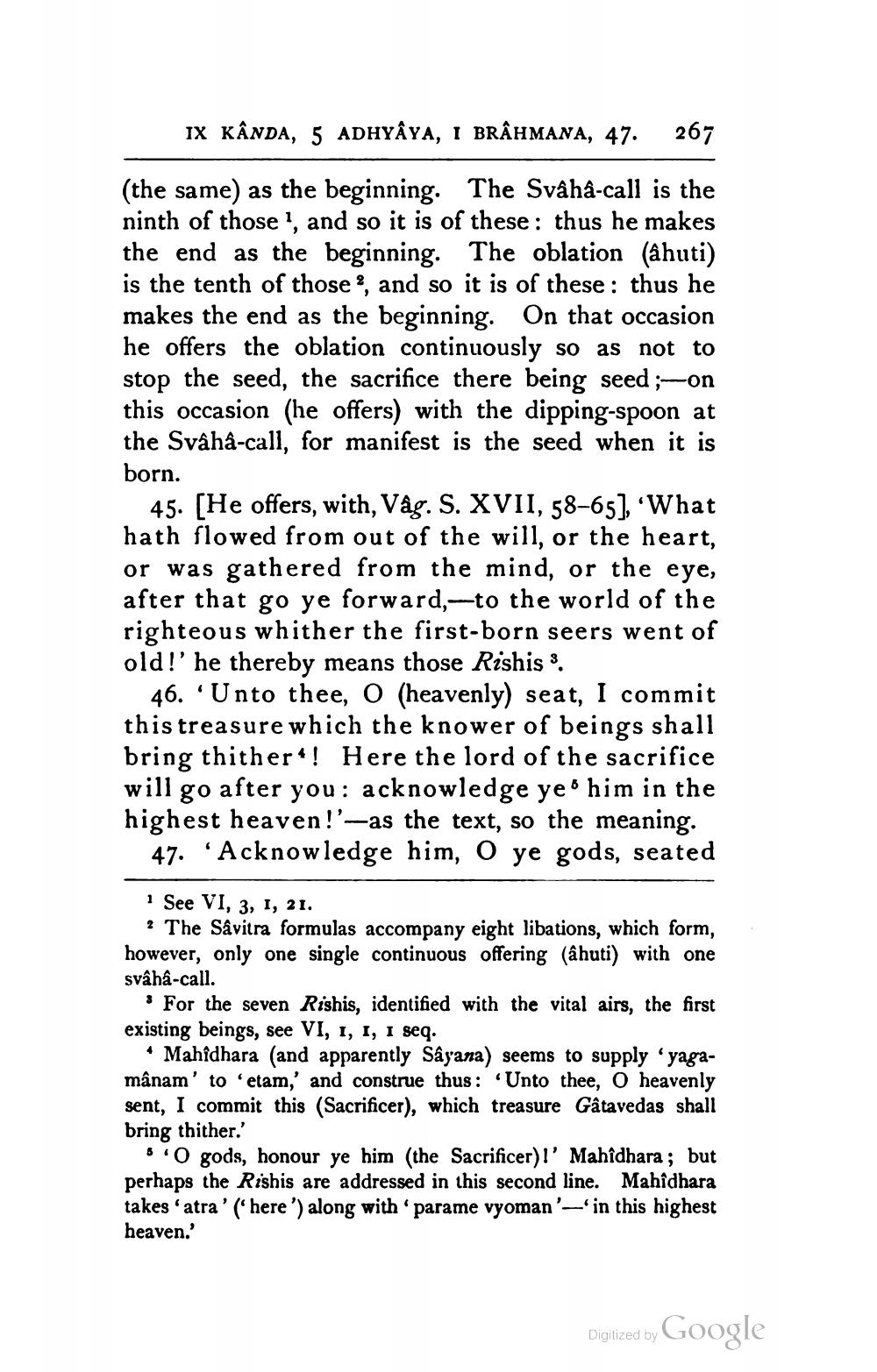________________
IX KÂNDA, 5 ADHYAYA, I BRÂHMANA, 47.
267
(the same) as the beginning. The Svâhâ-call is the ninth of those ?, and so it is of these : thus he makes the end as the beginning. The oblation (âhuti) is the tenth of those, and so it is of these : thus he makes the end as the beginning. On that occasion he offers the oblation continuously so as not to stop the seed, the sacrifice there being seed ;-on this occasion (he offers) with the dipping-spoon at the Svâhâ-call, for manifest is the seed when it is
born.
45. [He offers, with, Våg. S. XVII, 58–65). What hath flowed from out of the will, or the heart, or was gathered from the mind, or the eye, after that go ye forward,--to the world of the righteous whither the first-born seers went of old!'he thereby means those Rishis 3.
46. 'Unto thee, O (heavenly) seat, I commit this treasure which the knower of beings shall bring thithert! Here the lord of the sacrifice will go after you: acknowledge yeo him in the highest heaven!'-as the text, so the meaning.
47. 'Acknowledge him, O ye gods, seated
i See VI, 3, 1, 21.
? The Savitra formulas accompany eight libations, which form, however, only one single continuous offering (âhuti) with one svâhâ-call.
: For the seven Rishis, identified with the vital airs, the first existing beings, see VI, 1, I, I seq
* Mahîdhara (and apparently Sâyana) seems to supply yagamânam' to 'etam,' and construe thus : Unto thee, O heavenly sent, I commit this (Sacrificer), which treasure Gâtavedas shall bring thither.'
5 0 gods, honour ye him (the Sacrificer)!' Mahîdhara ; but perhaps the Rishis are addressed in this second line. Mahîdhara takes 'atra' (here') along with 'parame vyoman'-'in this highest heaven.'
cond line. Mahadhara
Digitized by Google




